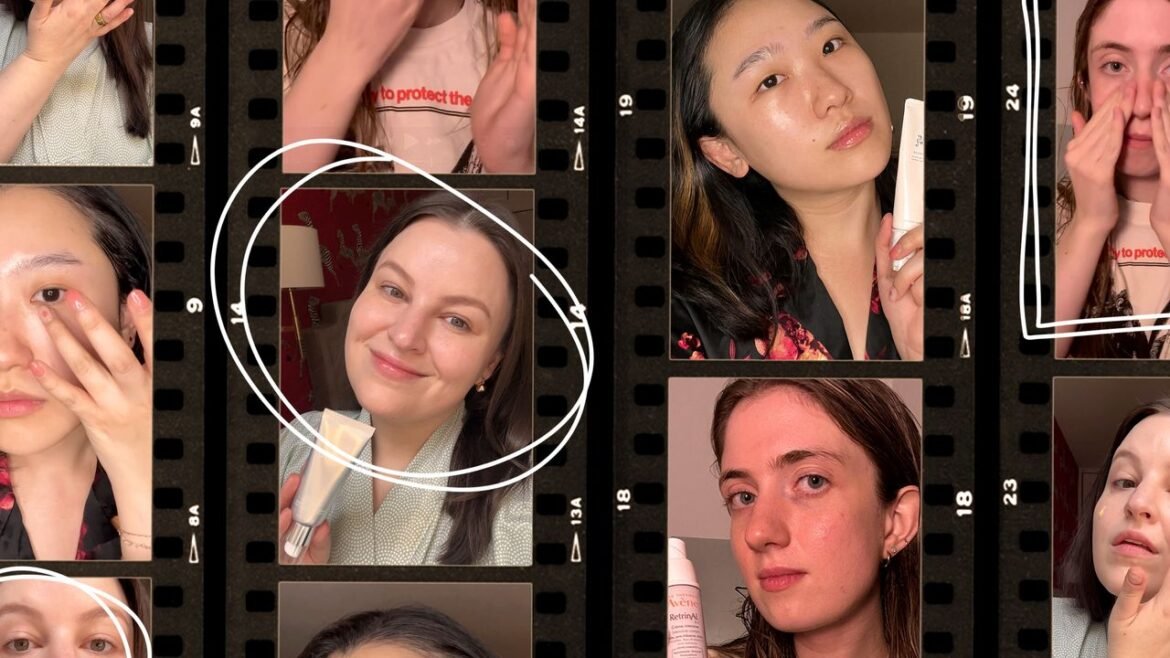Table of Contents
Editor’s tip: If you want more of a retinal punch, this formula comes in a 0.05% version.
Key ingredients: encapsulated retinaldehyde, peptides, ceramides, omegas | Fragrance-free: yes | Who it’s for: all skin types, especially for dry skin
Best for Oily Skin: Youth to the People Retinal + Niacinamide Youth Serum
Why we love it: While it’s great for most skin types, Dr. Berry especially loves Youth to the People’s Retinal + Niacinamide Youth Serum for oily or combo skin. “It glides on smoothly, sinks in fast, and strikes a nice balance,” she says. The formula combines 0.15% stabilized retinal with five percent niacinamide to support your skin barrier and even out tone. “Plus, ceramides and adaptogens help calm and hydrate, so you get all the benefits without the usual dryness or flaking,” says Dr. Berry. It also contains hyaluronic acid, which gives the serum a refreshing, lightweight feel and delivers just the right amount of hydration, leaving oily skin feeling balanced, not greasy.
Editor’s tip: The yellowish tint you see when you apply this skin-care product is normal—that’s just the natural color of retinal. It’ll dry down clear.
Key ingredients: retinaldehyde, niacinamide, hyaluronic acid, ceramides | Fragrance-free: yes | Who it’s for: all skin types, especially for oily skin
Frequently Asked Questions
Retinal versus retinol: What’s the difference?
“Retinal and retinol are both vitamin A derivatives, but retinal is one step closer to retinoic acid—the active form your skin uses. That means it works faster and is typically more potent than retinol,” says Dr. Levit. While retinol needs two conversions in the skin to become active, retinal only needs one, so you’ll often see quicker results when smoothing fine lines, improving texture, and fading dark spots. That said, “retinal can also be slightly more intense, so it’s usually recommended for those who’ve already built some tolerance to retinoids,” he says.
Is it better to use retinol or retinal?
It depends. “If you have sensitive skin or are brand-new to retinoids, retinol is a great place to start,” says Dr. Berry. “If you’re already tolerating retinol well, or you’re targeting deeper wrinkles, pigmentation, or acne, retinal can offer faster and more noticeable results with less irritation than prescription-strength options.”
Meet the experts
- Noah Levit, MD, PhD, a board-certified dermatologist of Dermatology Physicians of Connecticut based in Fairfield, Hamden, and Norwalk, CT
- Sonia Badreshia-Bansal, MD, a board-certified dermatologist and RealSelf expert based in Danville, CA
- Asmi Berry, DO, FAAD, a board-certified dermatologist in LA
How we test and review products
When Allure tests a product, our editors look at it from every angle in an effort to best serve you. We review ingredients, scrutinize brand claims, and, when necessary, examine peer-reviewed scientific and medical studies. In addition to testing each and every product that’s included in each and every review, we rely on experts who shape their fields, including dermatology, cosmetic chemistry, and medicine, to help us vet the ingredients and formulas.


